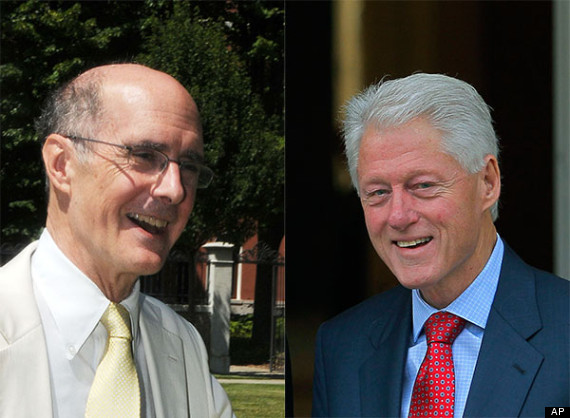Primer:
Obama extended this program through December 2015.
The Making Home Affordable Program is a critical part of the Obama administration’s efforts to provide relief to families at risk of foreclosure and help the housing market recover from the housing crisis, HUD explained.
“The housing market is gaining steam, but many homeowners are still struggling,” said Treasury Secretary Jacob Lew.
He added, “Helping responsible homeowners avoid foreclosure is part of our wide-ranging efforts to strengthen the middle class, and Making Home Affordable offers homeowners some of the deepest and most dependable assistance available to prevent foreclosure. Extending the program for two years will benefit many additional families while maintaining clear standards and accountability for an important part of the mortgage industry.”
Now the real truth of more toxic mortgages. A must read in full detail by clicking here.
Hedge funds get cheap homes, homeowners get the boot
PublicIntegrity: Julius Uwansc was in trouble with his mortgage after refinancing in 2009, just after the real estate bubble popped. Like millions of others, he found himself owing more on his house than it was worth.
The Nigerian-born father of four moved into his house on Richardson Road in Gwynn Oak, Maryland, in 2005. “We loved it because it has this big yard where the kids can play,” Uwansc says.
But soon after closing on the loan, Uwansc began having trouble making payments. He believed he had worked out a loan modification with Bank of America in 2011 after signing paperwork, but the bank disputed the terms Uwansc thought he had secured. When he didn’t pay the amount the bank said he owed, it claimed he was in default.
Uwansc’s mortgage was insured by the Federal Housing Administration, meaning if he failed to make payments, the bank would typically be paid the full value of what was left of the mortgage, plus costs associated with servicing the debt.
Bank of America filed for a claim and received payment. The mortgage was then transferred to the Department of Housing and Urban Development, which oversees the FHA.
Normally at this point, instead of taking over the mortgage, HUD regulations would require the bank to work with the borrower during a pre-foreclosure stage. If there’s no way to keep the homeowner in the home, HUD shepherds the property through the foreclosure process.
But not in this case.
The program
In 2010, HUD launched the mortgage sales program — now known as the Distressed Asset Stabilization Program, or DASP — under intense pressure from Congress to improve its finances. HUD can’t reduce the principal owed on mortgages it holds for homeowners, but it can sell the mortgages in bulk to investors at a steep discount — at times as little as 41 percent of the mortgages’ collective value.
The agency, through the FHA, insures loans to lower-income and first-time homebuyers. During the 2008 financial crisis and subsequent recession, many of those homeowners fell behind on their mortgage payments and foreclosures loomed.
Meanwhile, the FHA, due to an onslaught of claims, was desperately in need of a funding infusion.
The DASP program has a dual purpose: to lessen the impact of FHA insurance claims on defaulted mortgages on HUD’s finances, and according to a statement in April by Genger Charles, then the acting commissioner of HUD’s Office of Housing, to provide borrowers “a second chance at avoiding foreclosure.” Through DASP, lenders cash in on an FHA insurance claim on mortgages that are at least six months delinquent and HUD takes ownership of the mortgages. HUD then sells those mortgages to the highest bidder in bulk auctions.
Over 98,000 loans have been funneled through the DASP system since it began in 2010, with mortgages amounting to more than $16.7 billion in total debt.
The sales have helped the FHA insurance fund become solvent. According to an analysis of HUD’s sales results by the Center for Public Integrity, buyers have paid HUD $11.2 billion over the course of these auctions. The fund currently holds $4.8 billion, after being $16 billion in the red two years ago.
But when it comes to helping homeowners avoid foreclosure, the results are unimpressive. The program, it was hoped, would help homeowners because the investors who bought the loans were expected to offer better terms to borrowers. As part of the initiative, HUD included a stipulation that buyers must wait six months (it has since been bumped up to a full year) to foreclose to allow borrowers a chance to work with their new creditors.
“Once we sell [the mortgage] for something less than the principal balance,” explains HUD spokesperson Brian Sullivan, the lender “has more room to work with the homeowner.”
But the new owners of these mortgages are more likely to flip the homes for a profit or take advantage of the booming rental market, say some advocates. The transactions may make good financial sense, but they can leave struggling homeowners like Julius Uwansc in the dark, and in some cases on the streets.
“The investors are there to make money,” says Diane Cippolone, a mortgage servicing consultant to the National Fair Housing Alliance, a nonprofit organization. “They are not there to do neighborhood revitalization or neighborhood stabilization.
Depending on secrecy
FHA loans by law offer extra protections against foreclosure. In order to obtain that FHA insurance, a loan servicer, the company that collects payments and administers the loan, must make a series of efforts to modify loan terms to help owners keep their homes.
A lender can file a claim and turn the loan over to HUD for sale only when all these efforts have failed. The loans in DASP, according to HUD spokesman Sullivan, “are all headed to foreclosure — 100 percent of them — because they’ve exhausted their loss-mitigation options.”
But legal advocates and several borrowers say they have seen otherwise. The original lender reports that they’ve taken all the necessary steps, and HUD essentially takes their word for it, says the NCLC’s Geoff Walsh. “We’re hearing from a lot of homeowners that were still involved in loss mitigation,” he says, and could avoid foreclosure through normal FHA pathways.
Uwansc says he had no idea his mortgage was up for sale. Walsh says, “The program depends on secrecy. The program depends on the homeowner not knowing that their loan is being sold.”


